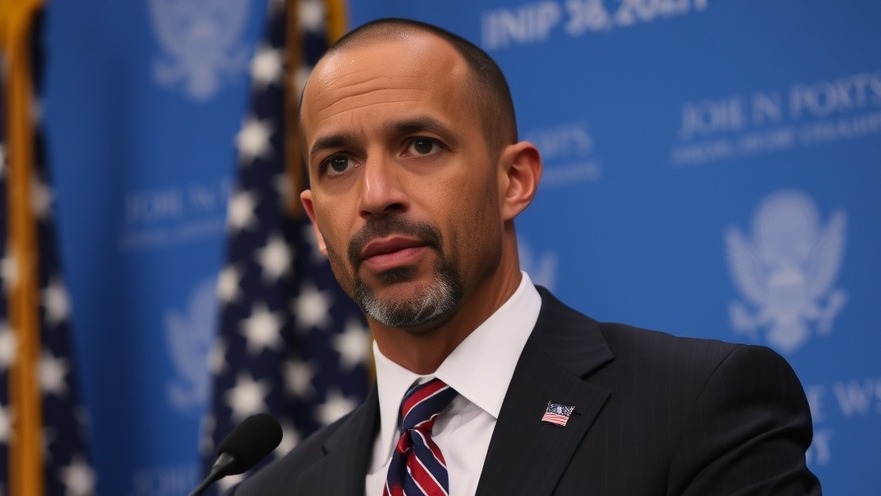
Is Fear Undermining American Democracy?
In a recent discussion, Senator Bernie Sanders articulated a growing concern about the fear that has enveloped Republican lawmakers. He asserts that many in Congress have succumbed to pressures that prioritize allegiance to party leadership over genuine representation of their constituents. This alarming suggestiveness about the current political atmosphere raises critical questions about the state of American democracy.
In 'That Is The Submission Of Republicans': Sanders Claims GOP Lawmakers Are 'Afraid' Of Defying Trump, the discussion dives into the troubling dynamics in U.S. political leadership, prompting us to analyze the broader implications of fear-driven governance.
The Role of Financial Influence in Politics
Sanders referenced the enormous financial backing that some party leaders wield, most notably citing Elon Musk’s chilling effect on political dissidents within the GOP. The influence of wealthy donors can stifle the voices of elected officials, creating an untenable environment where members of Congress fear primary challenges backed by unlimited funds. This dynamic transforms the electoral process from a platform for public service into a battleground for financial supremacy.
Case Study: Tom Tillis and the Cost of Defiance
A vivid example Sanders provided was the case of North Carolina Senator Tom Tillis. After hesitating to support a bill he believed would harm his constituents, Tillis faced immediate backlash from prominent figures within his party. The threats from Trump and wealthy proponents of the legislation led him to swiftly announce he wouldn’t seek re-election. This singular instance highlights how the fear of retribution can shape decision-making in Congress.
Conservative Values vs. Party Loyalty
Sanders underscored that not all Republicans align with extremism; many uphold traditional conservative values and genuine concern for their constituents. This dichotomy raises a significant question: How can principled lawmakers navigate an environment rife with intimidation? The fear of primary challenges may deter responsible leadership, forcing lawmakers to choose party loyalty over ethical governance.
What This Means for Voter Representation
As citizens, we must grapple with the implications of this climate of fear that has taken hold in our political system. When representatives prioritize survival over principles, the very foundation of democracy is threatened. The critical role of voters is amplified in such circumstances, underscoring the need for civic engagement and accountability.
The Future of American Politics: A Call for Courage
The narrative presented by Sanders poses a vital query: Will Republican lawmakers find the courage to stand up against the fear imposed by a politically charged atmosphere? Our democracy relies on officials willing to confront challenges authentically, steadfastly representing the needs of their constituents. The call for courage extends beyond party lines, initiating a broader dialogue on the essence of leadership within our political framework.
Take Action to Protect Democracy
In light of Sanders' analysis, it’s imperative for citizens to hold their representatives accountable. Follow local and national news closely, engage in dialogue, and ensure that your voice resonates in policymaking. The future of democracy rests not only on lawmakers but also on an informed and active populace.
 Add Element
Add Element  Add Row
Add Row 



Write A Comment